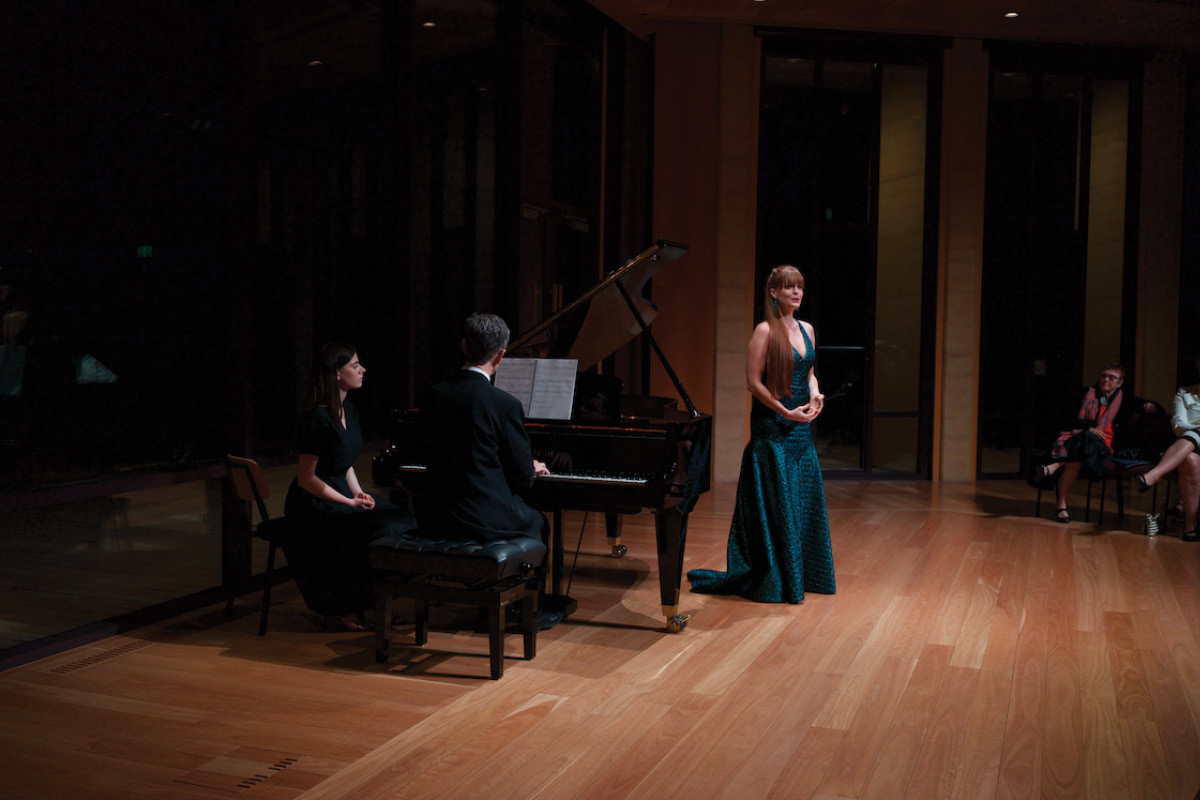The Canadian mezzo Wallis Giunta arrives with an excellent pedigree – prizes at both Juilliard and the Met and as last year’s winner as Young Singer of the Year at the International Opera Awards. Her reputation is rising quickly, and she has the goods on which to base a highly successful international career. In this recital for State Opera South Australia, Giunta explained that she had selected material thematically – centred on motherhood and the relationship between mother and child on both and a secular and religious level – and from a wide variety of musical genres, including alt-country, introspective folk, art song and opera. In doing so, she was able to show off her admirable technique but with such a wide range of material (which varied from folk and country to Broadway, opera and art song) it became hard to pull the whole recital together as a single entity. When it came to art song, the audience were generally treated to two song excerpts which made it harder to concentrate as Giunta went from Barber and Brahms to Joni Mitchell and Stephen Sondheim.
 Wallis Giunta and Philip Mayers. Photo supplied
Wallis Giunta and Philip Mayers. Photo supplied
Musically the performances were flawless with her being equally at home with both secular and sacred texts. Her diction was also flawless. There was no need to reach for a programme and the voice itself was well-placed, luxuriantly rich at the bottom whilst silvery smooth at the top of her register. She also has that rare ability to shift effortlessly between genres and to remain admirably idiomatic so that her take on Joni Mitchell’s Little Green was equally as affecting as those on Brahms, Britten and Robert Fleming. So this lack of programmatic cohesion aside, there was much to savour. Giunta’s only excursion into opera came with a virtuosic take on a short aria from Ponchielli’s La Gioconda. Here her voice was able to swell to its true full size, overwhelming with its precision and beautiful variety in vocal colour.
The art of accompanist is an art form unto itself, particularly where, as in this case, vocalist and singer do not regularly perform together. However, in the case of the Brahms selections this allowed the pianist Philip Mayers to partner the voice while also bringing out the autumnal hues of the composer’s late piano pieces like the intermezzi. He brought similar insight to Britten’s underheard song cycle A Charm of Lullabies, accentuating the left rather than right hand in the song A Charm. Perhaps most interest lay in Confession Stone, a song cycle by Robert Fleming. Setting sacred texts by Afro-American writers and written for another fine Canadian mezzo, the late Maureen Forrester, it has reminiscences of not only Barber and Rorem, but also Hindemith’s neglected Das Marienleben with texts by Rilke.
The excerpts chosen from works such as Barber’s Hermit Songs and Schumann’s Frauenliebe und Leben made you wish to hear the whole cycle as did particularly fine performances of De Falla and Montsalvatge. From Falla’s dreamy lullaby Nana, it was to Broadway we went for selections from Ragtime and Into the Woods to finish the recital. There is no doubt that with Giunta we have a fine and individual talent with a highly attractive voice, technique with rare attention to diction, colour and detail; however the programming needs work.











Comments
Log in to join the conversation.